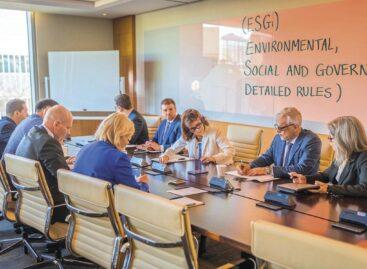How sustainability may alter the food chain?
An article published last week in the Forbes investigates factors defining consumers’ attitudes towards sustainable diet and how sustainability may alter the food chain.
Consumers are generally unaware how the food choices they make are affecting the environment but when they learn, they act differently. An organization called the Educated Choices Program runs food information programs for students and consumers. Educated Choices’ follow-up studies show that a majority of people who participate in their programs report that they’ve reduced or eliminated meat in their diet.
Ten years ago, only tree-huggers bought electric vehicles. Now it’s cool and the best-selling vehicle in America, the Ford F-150, is available in an electric version that is priced competitively. The same is likely to happen with food but it will take time.
According to the experts change will take a long time, maybe 10 years. The change will require two things: consumers to become informed and great choices to become available. A lot depends on how it comes out on a consumer’s plate. Today many plant-based products available are defined by not being animal-based or environmentally harmful. What’s needed is products that are better tasting and more healthful than the current choices.
As an other expert summed it up, food manufacturing sits on the precipice of massive disruption driven by colossal forces – the changing climate, severe geopolitical stresses, and today’s conscientious and digitally-informed consumer.
To work, the taste and pricing of the new products will have to be competitive and accessible to normal people. But it’s also true that people’s tastes will change based on what they learn and the peers they associate with. The younger you are, the more likely it is that you prefer oat milk to cow’s milk. It’s not about age, it’s about value systems.
We can’t know now which of the new food products will be successful. But what we’re seeing in food, as we are seeing in so many consumer categories, is that new technology and cultures are causing shifts that are threatening to the legacy infrastructure and that will accelerate over time.
Source: forbes.com
Related news
Lidl has published its 3rd sustainability report
Lidl Hungary’s sustainability report for the 2022/2023 business years has…
Read more >ESG – about sustainability standards, from a legal perspective
Since December 2023 several pieces of legislation have been published…
Read more >They want it to be premium, but also sustainable – expectations of the youngest generation
GlobalData’s latest report, “Demographics in Retail and Apparel” – which…
Read more >Related news
Fidelity Outlook 2025: New paths for stocks
As we approach 2025, it is clear that the macroeconomic…
Read more >ESG – about sustainability standards, from a legal perspective
Since December 2023 several pieces of legislation have been published…
Read more >Shoppers are prepared to look for the best deals – EY Christmas survey
The majority of shoppers are specifically looking for and waiting…
Read more >







